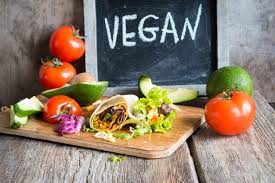The vegetarian diet is associated with a number of health benefits. First of all, studies reveal that vegetarians tend to have a better dietary quality than meat-eaters. It has been determined that vegetarians have higher nutritional values such as fiber, vitamin C, vitamin E and magnesium. In general, the health support provided by a vegetarian diet includes:
- It increases weight loss. For this reason, those who want to lose weight follow a vegetarian diet.
- It reduces the risk of cancer. Studies show that a vegetarian diet creates a lower risk of cancer in breast, colon, rectum and stomach cancers.
- It stabilizes blood sugar. Studies show that a vegetarian diet helps maintain healthy blood sugar levels.
- It promotes heart health. A vegetarian diet lowers the risk of several heart diseases to help keep the heart healthy and strong.
In a nutshell, vegetarians not only tend to get more of a few essential nutrients, they also have weight loss, reduced cancer risk, better blood sugar and better heart health.
Conversely, while vegetarian diets are versatile, healthy and nutritious, they also pose potential dangers in terms of risk of certain nutritional deficiencies. Studies show that vegetarians have a higher risk of protein, calcium, iron, iodine, and vitamin B12 deficiency. Experts emphasize that vegetarians should receive proper nutrition, with a variety of fruits, vegetables, whole grains, protein sources and fortified foods.
Why is a Vegetarian Certificate Required?
The vegetarian certificate helps manufacturers to recognize the growing vegetarian market and to spread the lifestyle represented by the concept of vegetarian. Today, thousands of products produced by hundreds of companies have vegetarian labels on the market. The certified vegetarian label not only raises people's awareness of vegetarian diets, but also supports vegetarian friendly companies to become more recognizable and sustainable.
Conscious of not harming living things, consumers want to make sure that the products they consume do not contain animal foods. However, it is not possible to understand this by observing. Because elements that seem harmless at a glance may contain traces of ingredients that are not suitable for vegetarians. In this respect, it is important to label and document vegetarian foods.
In order to obtain a vegetarian certificate, it is necessary to produce in accordance with strict standards. These standards are determined by vegan and vegetarian organizations operating in the international arena. While accredited organizations certify a vegetarian-friendly product, inspectors are not only looking for essential animal and animal by-products, but also sodium salt of inosinic acid (E630), a natural acid mostly found in animals, beeswax (E901) used as surface coating in food, spermaceti (whiskers). whale oil), amino acids important for the synthesis of many hormones in the human and animal body and for muscle and bone development, collagen, a protein derived from parts of animals such as meat, skin and bones, and more.
In addition, when producing any product in facilities containing animal-based components, the machines must be tightly cleaned between uses. Manufacturing facilities are also inspected from this perspective to ensure that there is no cross contamination between products and components.
How to Obtain a Vegetarian Certificate?
Vegetarian products are certified by accredited organizations that act impartially and independently. It means that the products bearing the labels of these authorized organizations do not contain meat, poultry, fish, seafood or insects, and it has been determined and approved by the tests and analyzes performed. Only proven and reliable vegetarian products can carry these labels.
In order to obtain a vegetarian certificate, it is necessary to apply to a certification body first. During this application, the materials and products to be certified should be listed in detail. After the contract is signed between the manufacturer and the certification body, auditors are assigned and the production facilities and product contents are tested and analyzed. Companies that pass the tests, analyzes and evaluations successfully are allowed to attach a vegetarian label to these products and a vegetarian certificate is issued and delivered to the company.
TÜRCERT Technical Control and Certification Inc., accredited by national and international organizations, closely follows the developments in the world in the field of science and technology and has a strong staff that constantly improves itself. It also uses modern test equipment and applies test methods accepted all over the world. TÜRCERT also offers vegan and vegetarian certification services within the scope of testing and certification services it provides to companies from all sectors with this strong infrastructure.



